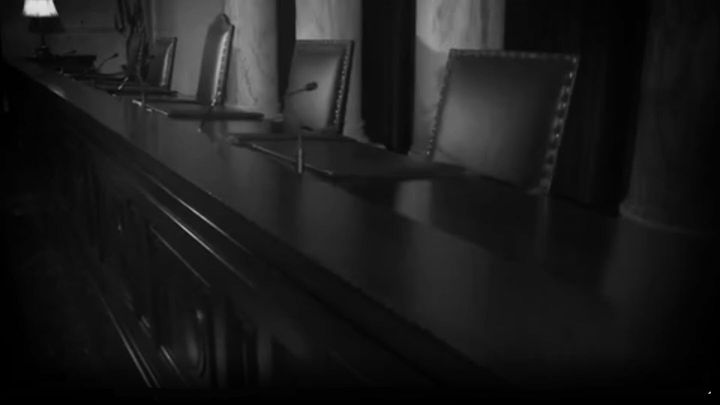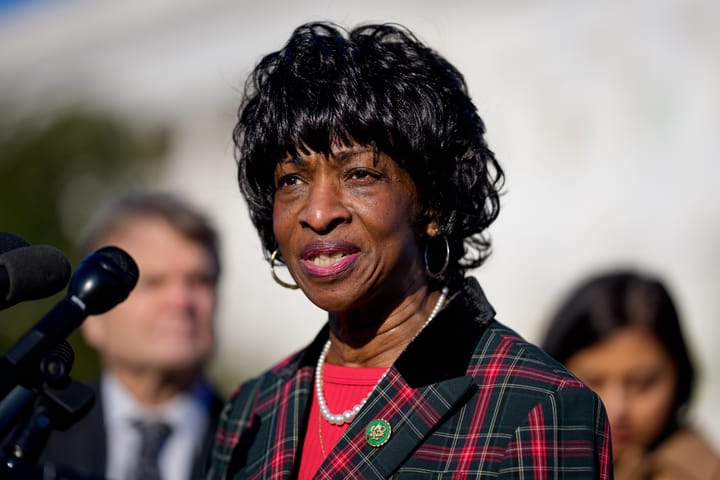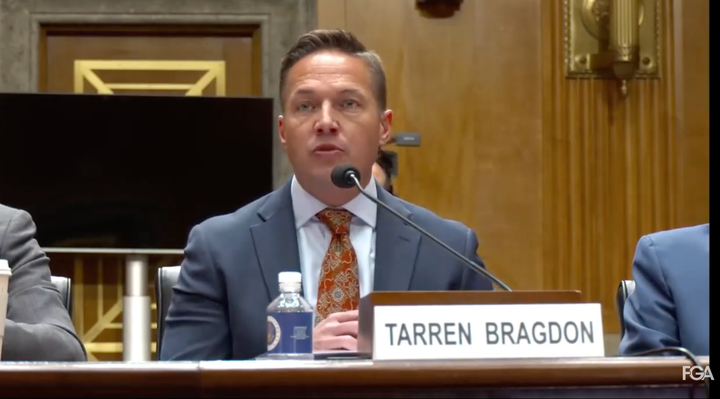When West Virginians go to the polls on Tuesday, June 9, to elect three new Supreme Court of Appeals justices, in at least one of the contests voters will likely have heard more about the candidates from outside groups funded by corporate interests and secret donors than from the candidates themselves. That’s because two groups—the Republican State Leadership Committee’s (RSLC) Judicial Fairness Initiative and ReSet West Virginia PAC—have spent a combined $2.7 million to boost their preferred candidates and blanket the airwaves with television ads, far more than any of the candidates have spent on ads.
The outside spending has focused on the First District race between incumbent Supreme Court Chief Justice Tim Armstead, former Supreme Court Justice Richard Neely, and circuit judge David Hummel.
The RSLC’s Judicial Fairness Initiative has spent more than $1.5 million since May 12 on television ads and other forms of expenditures that oppose Neely or support Armstead, according to campaign finance records maintained by the Office of the West Virginia Secretary of State. That amount far outweighs the $163,000 the Armstead campaign has spent, according to state records.
The RSLC, which provides all of the funding for Judicial Fairness Initiative, is a D.C.-based Republican Party organization that focuses on down-ballot races. It was primarily funded by a wide range of corporations in the first quarter of the year, according to its most recent disclosure filed with the Internal Revenue Service.
RSLC’s largest donor so far in 2020 is Marathon Petroleum, which gave $525,000. Marathon Petroleum operates terminals in West Virginia and it has been a defendant in multiple cases brought before the state’s court system in recent years. Several other donors in the fossil fuel industry have also donated to the RSLC this year, including Koch Industries ($100,000), Marathon Oil Company ($100,000), American Fuel and Petrochemical Manufacturers ($75,000), and Peabody Energy ($25,000).
The second largest RSLC donor is the Judicial Confirmation Network (JCN), a “dark money” nonprofit that has spent millions to help elect conservative supreme court judges at the state and federal levels. JCN has been heavily funded by the Wellspring Committee, a dark money group with ties to the Koch network that was primarily funded by a single anonymous donor. JCN and the Wellspring Committee have both made payments to BH Group, which, according to documents filed at the FEC, is affiliated with Federalist Society executive vice president Leonard Leo, who has worked with national Republicans to install far-right judges. JCN, which does not disclose its donors, gave RSLC $500,000 in the first quarter of 2020.
Other RSLC donors listed on the first quarter filing include Facebook ($50,000), CoreCivic ($50,000), and Pfizer ($200,000).
Judicial Fairness Initiative’s ads attack Neely on his record from his prior term at the Supreme Court. Julie Archer, project manager at West Virginia Citizen Action Group, a public-interest nonprofit, told Sludge that the ads rely on fear tactics that may discourage people from voting.
“The ads aren’t informative, but unfortunately they are often effective and distort the public perception of criminal justice issues in particular by playing on people’s fears about murderers, child molesters, and terrorists,” Archer told Sludge. “If voters aren’t swayed by the ads, then they’re turned off by them and discouraged from voting, which is likely an intended side-effect.”
Archer also said that ads being run by the Judicial Fairness Initiative are similar to those run in 2004 by former Massey Energy CEO Don Blankenship while his company had a $50 million judgement against it pending before the court.
Opposing Armstead and backing Neely is ReSet West Virginia PAC, an independent expenditure committee funded primarily by a “dark money” nonprofit called For West Virginia’s Future. ReSet West Virginia PAC has spent $450,000 since May 22 on ads and mailers boosting Neely and opposing Armstead, according to West Virginia Secretary of State documents.
Not much is known about For West Virginia’s Future, except that it was incorporated in the state in 2018 and its president is Cory Dennison, who works 40 hours per week as president of a nonprofit called Vision Shared, according to IRS documents. Vision Shared, which does not have an active website, says on its tax filings that its mission is “to promote and encourage economic development and expansion in the state of West Virginia.” The group’s board includes fossil fuel industry lobbyists. Chairman Russ Lorince is vice president of external affairs at Arch Coal, which has mines in West Virginia, while Secretary Maribeth Anderson is vice president of government affairs at oil and gas company Antero Resources.
ReSet West Virginia PAC has also received funding this year from labor group West Virginia State Building & Constructions Trades Council ($100,000), West Virginia Strong ($80,000), and Expanding West Virginia Opportunities ($50,000).
A third outside group spending money on the First District race is the West Virginia Chamber of Commerce, which has spent an estimated $23,740 on a television ad that endorses Armstead, according to the Kantar Media/CMAG data shared by the Brennan Center for Justice. The West Virginia Chamber of Commerce registered with the Office of the West Virginia Secretary of State on May 21 and has not disclosed any of its contributors.
Vivian Stockman of the Ohio Valley Environmental Coalition, a West Virginia-based group, told Sludge that the oil and gas industry is “attempting to influence the branch that could strike down unconstitutional provisions of laws enacted at the expense of human health and the environment, especially for low-income communities and communities of color where the majority of polluting industries attempt to locate themselves.
“That these corporations are so secretively spending so much to try to influence our elections tell us something though—our votes are powerful,” Stockman said. Though it is hard to overcome the noise and the negativity of the ads, it behooves those of us who want to see rapid progress toward a more just society to ignore the ads, inform ourselves, vote for the best available candidates, and then—in between judicial elections—birddog another branch of government to demand laws that protect and restore judicial independence.”
Read more from Sludge:
Trump Admin Finalizes Rule That Could Protect Foreign Dark Money in Elections
Dark Money Pours Into Wisconsin Supreme Court Race
‘Liberate’ Rally Organizers Worked to Criminalize Anti-Pipeline Protests
Three More States Expand Vote-By-Mail, Leaving Five Holdouts



